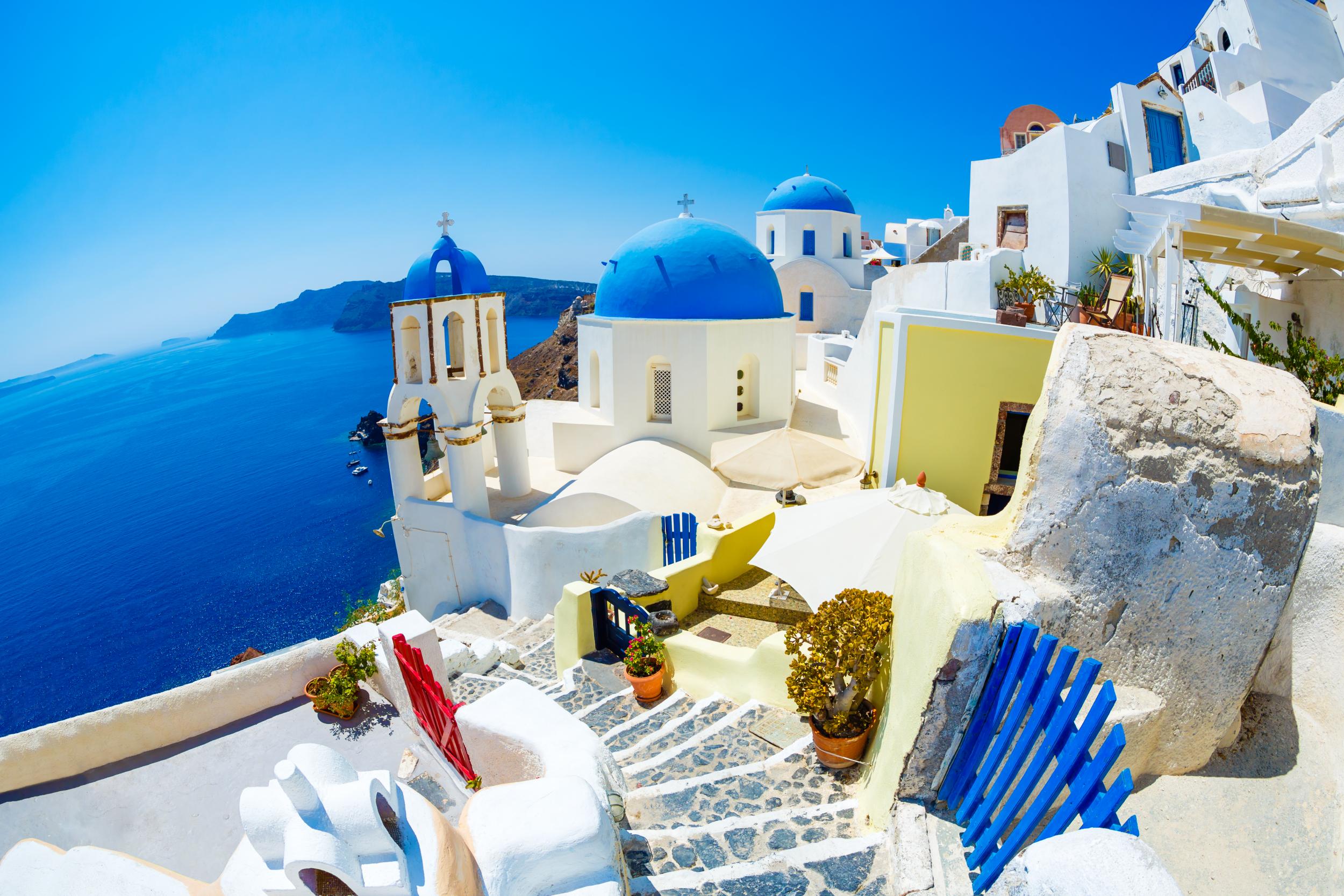Greece visitor numbers set to break European records this summer
The popular holiday destination is feeling the strain

Your support helps us to tell the story
From reproductive rights to climate change to Big Tech, The Independent is on the ground when the story is developing. Whether it's investigating the financials of Elon Musk's pro-Trump PAC or producing our latest documentary, 'The A Word', which shines a light on the American women fighting for reproductive rights, we know how important it is to parse out the facts from the messaging.
At such a critical moment in US history, we need reporters on the ground. Your donation allows us to keep sending journalists to speak to both sides of the story.
The Independent is trusted by Americans across the entire political spectrum. And unlike many other quality news outlets, we choose not to lock Americans out of our reporting and analysis with paywalls. We believe quality journalism should be available to everyone, paid for by those who can afford it.
Your support makes all the difference.Greece is the latest in a string of European countries fighting to maintain the fine balance between sustainable tourism and “overtourism” - with one prominent politician saying the country is feeling the strain.
This year, the country is expected to welcome 32 million foreign travellers – an almost 100 per cent increase from the 15 million visitors in 2010 and over five times the amount of visitors from 10 years ago.
The tiny island of Santorini has felt the strain more than anywhere else. At just 76 square kilometres, it has reportedly struggled with traffic jams and overcrowding, alongside rising water and energy consumption. This has led to the introduction of a daily cap on cruise passengers to the island in an attempt to restrict the number of visitors.
For a country that has recently been on the brink of bankruptcy, the heavy flow of tourists has arguably been a necessary evil in keeping its economy afloat. But, is there a limit to the country’s global popularity?
Nikos Chrysogelos, the Greek politician and environmentalist, thinks so. “We can't keep having more and more tourists,“ he told the Observer. ”We can't have small islands, with small communities, hosting one million tourists over a few months. There's a danger of the infrastructure not being prepared, of it all becoming a huge boomerang if we only focus on numbers and don't look at developing a more sustainable model of tourism.”
Nikos Zorzos, the island’s mayor, told the Guardian: “Santorini has developed the problems of a city. We have built numerous desalination plants and are in the process of erecting the biggest one in Greece, but in five years’ time I worry even that won’t be enough. We can’t keep having more and more tourists.”
A report published by the World Travel and Tourism Council last year, entitled Coping with Success: Managing Overcrowding in Tourist Destinations, acknowledges the challenges that can arise from a rapid increase in tourists.
The report identifies five key consequences of overtourism: Alienated local residents, degraded tourist experiences, overloaded infrastructure, damage to nature and threats to culture and heritage. “Alienated local residents” is perhaps the most telling factor when it comes to overcrowding as it’s broken into two parts: Density of tourism, which is the number of visitors per square kilometre, and tourism intensity, which is the number of tourists per one resident.
With one in five Greek people working in the tourism sector, achieving an equilibrium that benefits residents and tourists will be a delicate business.
Join our commenting forum
Join thought-provoking conversations, follow other Independent readers and see their replies
Comments